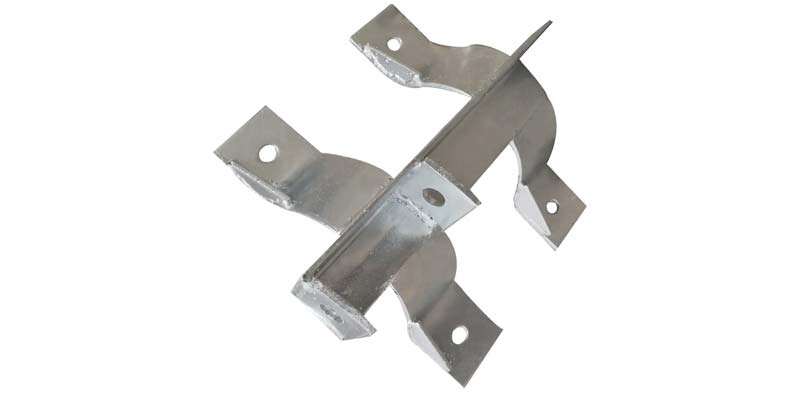- Contact Innally, Let you purchase forgings in China more favorable prices, products more assured!
- Hotline:+(86)15038323776 Email:innally@innally.com
Ensure the performance and safety of aircraft forgings
- Category: Aluminium alloy forging, Thermal forging
- |
- Date: 05/10/2023
To ensure the performance and safety of aircraft forgings, it is necessary to carry out comprehensive control from the aspects of raw material selection, manufacturing process control and quality inspection. In actual manufacturing, enterprises need to choose the right forging method and process parameters according to product requirements and material characteristics to ensure the quality and performance of forgings. At the same time, strengthening technology research and development and improving production efficiency are also important development directions for aircraft forging manufacturing enterprises.
Product Details
Aircraft forgings are key components in aircraft structure, whose quality and performance directly affect the safety and service life of aircraft. In order to ensure the performance and safety of aircraft forgings, a series of measures need to be taken, including the selection of high-quality raw materials, strict control of the manufacturing process, and strict quality testing. This paper will introduce how to ensure the performance and safety of aircraft forgings from the aspects of raw material selection, manufacturing process control and quality inspection.
First, raw material selection
To ensure the performance and safety of aircraft forgings, we must first choose raw materials. The selection of high-quality raw materials is the basis for ensuring the quality of forgings, so materials with high strength, corrosion resistance, high temperature resistance and other characteristics should be selected. At the same time, but also take into account the cost of materials and production process and other factors, choose cost-effective materials. When selecting raw materials, the relevant standards and specifications should be followed to ensure that the selected materials meet the requirements.

- Manufacturing process control
Strict control of the manufacturing process of aircraft forgings is the key to ensure its performance and safety. In the manufacturing process, a series of measures should be taken, including:
Control forging temperature and deformation: forging temperature and deformation are important factors affecting the quality and performance of forging. In the forging process, the forging temperature and deformation should be reasonably controlled according to the material characteristics and product requirements to ensure the quality and performance of the forging.
The use of advanced forging process: The use of advanced forging process can improve the quality and performance of forgings. For example, precision die forging, multi-directional forging and other processes can improve the accuracy and surface quality of forgings.
Heat treatment: Heat treatment can improve the structure and properties of forgings, improve their strength and toughness. In the heat treatment process, the heat treatment temperature and time should be reasonably controlled according to the material characteristics and product requirements to ensure the quality and performance of the forging.
Strengthen quality control: In the manufacturing process, quality control should be strengthened to detect and deal with potential quality problems in a timely manner. For example, non-destructive testing, chemical composition analysis, mechanical properties testing and other means can be used to test forgings to ensure that they meet the relevant standards and requirements.
Third, quality testing
After the manufacturing of aircraft forgings is completed, strict quality testing should be carried out to ensure that its quality and performance meet the requirements.
Quality testing should include the following aspects:
Appearance inspection: Observe the surface quality of the forging, check whether there are cracks, slag inclusion, oxide and other defects.
Non-destructive testing: internal testing of forgings by means of X-ray testing, ultrasonic testing, magnetic particle testing, etc., to find potential internal defects.
Chemical composition analysis: The chemical composition of the forgings is analyzed to ensure that it meets the relevant standards and requirements.
Mechanical properties testing: The mechanical properties of forgings are tested to ensure that they comply with relevant standards and requirements. For example, tensile tests, impact tests and other tests can be carried out to assess the strength and toughness of the forgings.
To ensure the performance and safety of aircraft forgings, it is necessary to carry out comprehensive control from the aspects of raw material selection, manufacturing process control and quality inspection. In actual manufacturing, enterprises need to choose the right forging method and process parameters according to product requirements and material characteristics to ensure the quality and performance of forgings. At the same time, strengthening technology research and development and improving production efficiency are also important development directions for aircraft forging manufacturing enterprises. Only in this way can we provide a strong guarantee for the rapid development of the aviation industry.
nannan
INNALLY website editing, to provide you with forging related information
Related Products
Search
Forging center
- Steel forgings
- Aluminium alloy forging
- Titanium alloy forging
- Stainless steel forging
- Copper forging
- Automotive forgings
- Locomotive forging
- Bicycle forgings
- Motorcycle forging
- Rigging and fasteners
- Bearing forging
- Electric power fittings
- Marine forging
- Mechanical forgings for metalworking
- Mining machinery forgings
- Marine engineering forgings
- Construction machinery forgings
Popular product

© 2025. All Rights Reserved.






